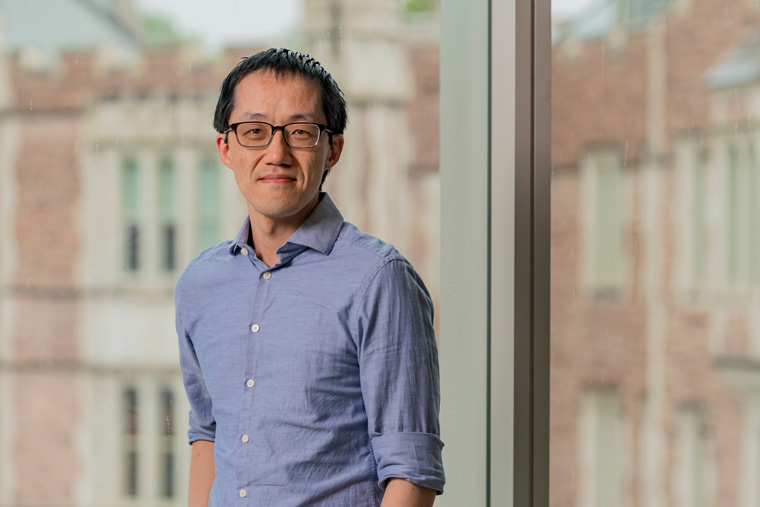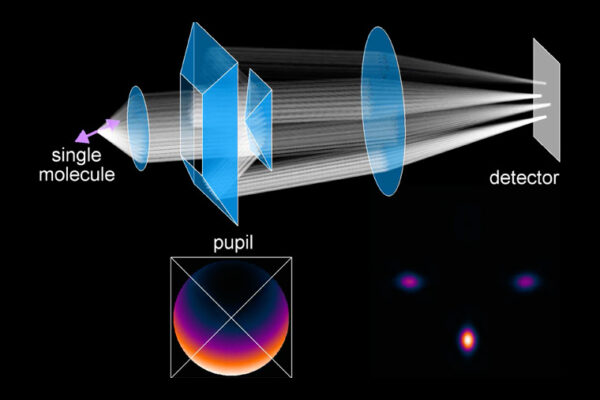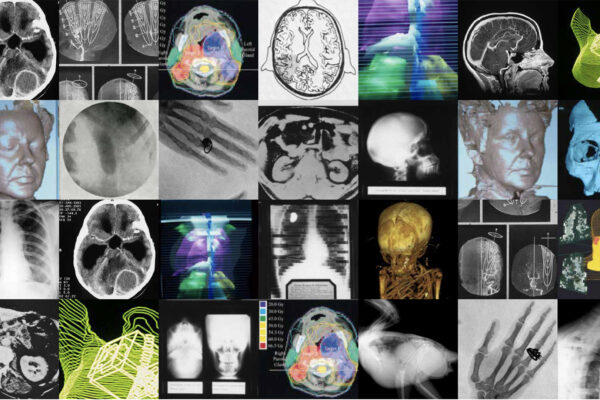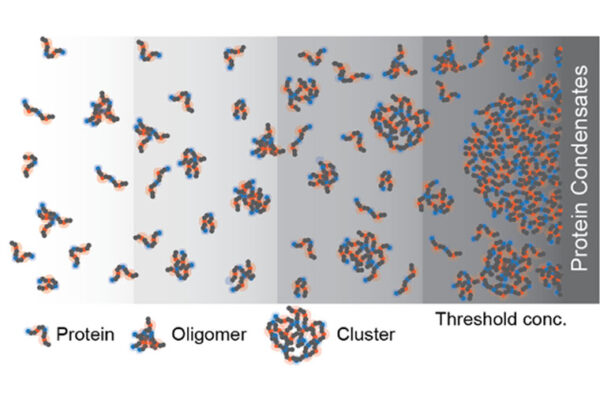Matthew Lew, an associate professor of electrical and systems engineering at the McKelvey School of Engineering at Washington University in St. Louis, has received a five-year $2 million Maximizing Investigators’ Research Award (MIRA) from the National Institutes of Health (NIH) to support his ongoing work to improve microscopic imaging techniques. Lew will use the technology to better visualize individual molecules, particularly those involved in Alzheimer’s disease.

Lew’s earlier research paired chemical and optical approaches to get a closer look at what individual molecules are doing using a five-dimensional optical microscope. Now, he will move into another dimension and fuse model-driven design algorithms with data-driven deep learning methods to produce smart microscopes.
“We’re pushing nanoscopy, also called super-resolution optical microscopy, into six dimensions to measure the 3D position and 3D orientation of individual molecules in biological systems,” Lew said. “When we started this project six years ago, we were unsure how feasible this would be, but we recently published our first demonstration of 6D imaging in cells. We’re exploring how to make the technology more precise, more sensitive, faster and easier to use.”
A key goal of the project is to enable measurements that are not possible with current state-of-the-art nanoscopes. By developing smart microscopes that can adapt as they collect more data, Lew and his team aim to discover how dynamic interactions between individual biomolecules at the nanoscale influence their collective function and organization in complex biophysical processes, such as the evolution of biomolecular condensates and diseases caused by their dysregulation, including Alzheimer’s and Huntington’s diseases.
“I’m excited to partner with collaborators in McKelvey Engineering to use 6D nanoscopy to study biomolecules in ways no other technology can,” Lew said.
Lew’s collaborators include Jai Rudra, an associate professor of biomedical engineering, and Rohit Pappu, the Gene K. Beare Distinguished Professor and director of the Center for Biomolecular Condensates, both at McKelvey Engineering. With this multidisciplinary expertise, the team seeks to understand variations in the architecture of self-assembling peptides for biomaterials applications and visualize dynamic network architectures within condensates.
“One of the best aspects of the NIH’s MIRA program is the flexibility for investigators to follow important new research directions as opportunities arise,” Lew said. “We will explore many possibilities, including those beyond what we can imagine right now.”
Originally published by the McKelvey School of Engineering


